
Immanuel Kant was a German philosopher and one of the central Enlightenment thinkers. Born in Königsberg, Kant's comprehensive and systematic works in epistemology, metaphysics, ethics, and aesthetics have made him one of the most influential and controversial figures in modern Western philosophy.
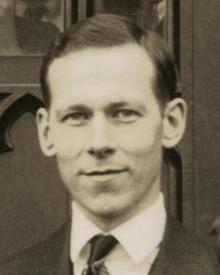
Robert Sanderson Mulliken was an American physicist and chemist, primarily responsible for the early development of molecular orbital theory, i.e. the elaboration of the molecular orbital method of computing the structure of molecules. Mulliken received the Nobel Prize in Chemistry in 1966 and the Priestley Medal in 1983.
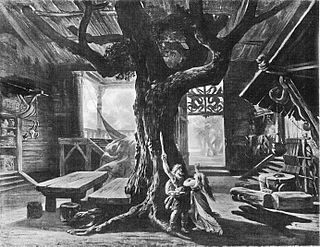
Die Walküre, WWV 86B, is the second of the four music dramas that constitute Richard Wagner's Der Ring des Nibelungen. It was performed, as a single opera, at the National Theatre Munich on 26 June 1870, and received its first performance as part of the Ring cycle at the Bayreuth Festspielhaus on 14 August 1876.

The Focke-Wulf Fw 200 Condor, also known as Kurier to the Allies, is a German all-metal four-engined monoplane originally developed by Focke-Wulf as a long-range airliner. A Japanese request for a long-range maritime patrol aircraft led to military versions that saw service with the Luftwaffe as long-range reconnaissance and anti-shipping/maritime patrol bomber aircraft. The Luftwaffe also made extensive use of the Fw 200 as a transport aircraft.

Friedrich Hermann Hund was a German physicist from Karlsruhe known for his work on atoms and molecules.
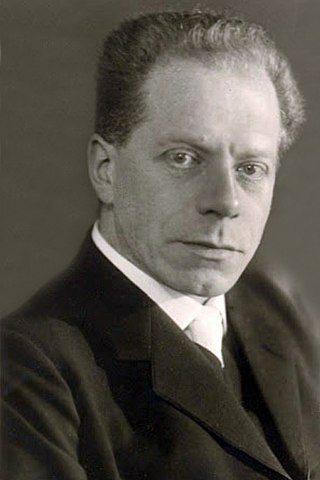
Leonard Nelson, sometimes spelt Leonhard, was a German mathematician, critical philosopher, and socialist. He was part of the neo-Friesian school of neo-Kantianism and a friend of the mathematician David Hilbert. He devised the Grelling–Nelson paradox in 1908 and the related idea of autological words with Kurt Grelling.
Wulf was one of the most prolific elements in early Germanic names. It could figure as the first element in dithematic names, as in Wulfstan, but especially as second element, in the form -ulf, -olf as in Cynewulf, Rudolph, Ludolf, Adolf etc., it was extremely common. Förstemann explains this as originally motivated by the wolf as an animal sacred to Wodanaz, but notes that the large number of names indicates that the element had become a meaningless suffix of male names at an early time.
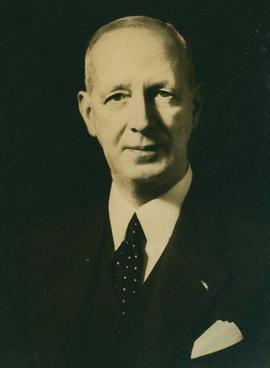
Sosthenes Behn was an American businessman, and the founder of ITT. He held the rank of lieutenant colonel in the U.S. Army.
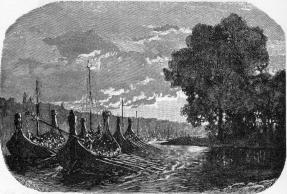
The Wulfings, Wylfings or Ylfings was a powerful clan in Beowulf, Widsith and in the Norse sagas. While the poet of Beowulf does not locate the Wulfings geographically, Scandinavian sources define the Ylfings as the ruling clan of the Eastern Geats.

Beowulf is a legendary Geatish hero in the eponymous epic poem, one of the oldest surviving pieces of English literature.
Richard Kroner was a German neo-Hegelian philosopher, known for his Von Kant bis Hegel (1921/4), a classic history of German idealism written from the neo-Hegelian point of view. He was a Christian, from a Jewish background. He is known for his formulation of Hegel as 'the Protestant Aquinas'.

Ernst Laas was a German positivist philosopher.

Thorir Hund was one of the greatest chiefs in Hålogaland. Tore Hund was one of the leaders of the Stiklestad farmer faction opposing Norwegian King Olaf II of Norway, later named St. Olaf. He was reported to have been among the chieftains who killed the king in the Battle of Stiklestad in 1030. He also served in the forces of King Canute the Great on several occasions.

Otto Liebmann was a German neo-Kantian philosopher.
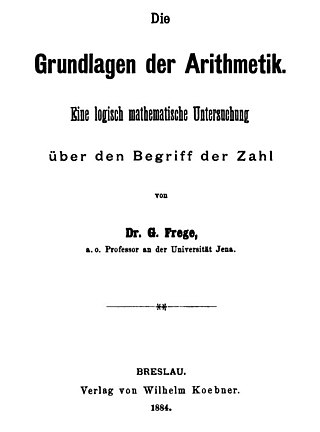
The Foundations of Arithmetic is a book by Gottlob Frege, published in 1884, which investigates the philosophical foundations of arithmetic. Frege refutes other theories of number and develops his own theory of numbers. The Grundlagen also helped to motivate Frege's later works in logicism. The book was not well received and was not read widely when it was published. It did, however, draw the attentions of Bertrand Russell and Ludwig Wittgenstein, who were both heavily influenced by Frege's philosophy. An English translation was published by J. L. Austin, with a second edition in 1960.
The Hundings are a legendary tribe or clan in early Germanic sources, mostly mentioned due to their feud with the Wulfings.

Benno Erdmann was a German neo-Kantian philosopher, logician, psychologist and scholar of Immanuel Kant.

Karl Gotthelf, Baron von Hund und Altengrotkau was a German freemason. In 1751, he founded the Rite of Strict Observance.
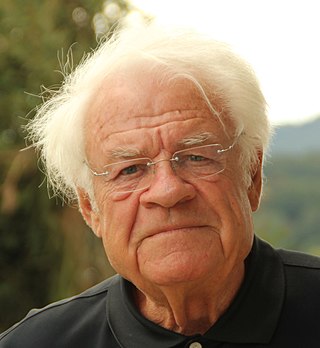
Wolfgang Kuhlmann is a German philosopher and representative of the discourse ethics.

Mareike Lotte Wulf is a German politician (CDU) who has been serving as a member of the German Bundestag since 2021. From 2017 to 2021, she was a member of the Lower Saxony state parliament.
















